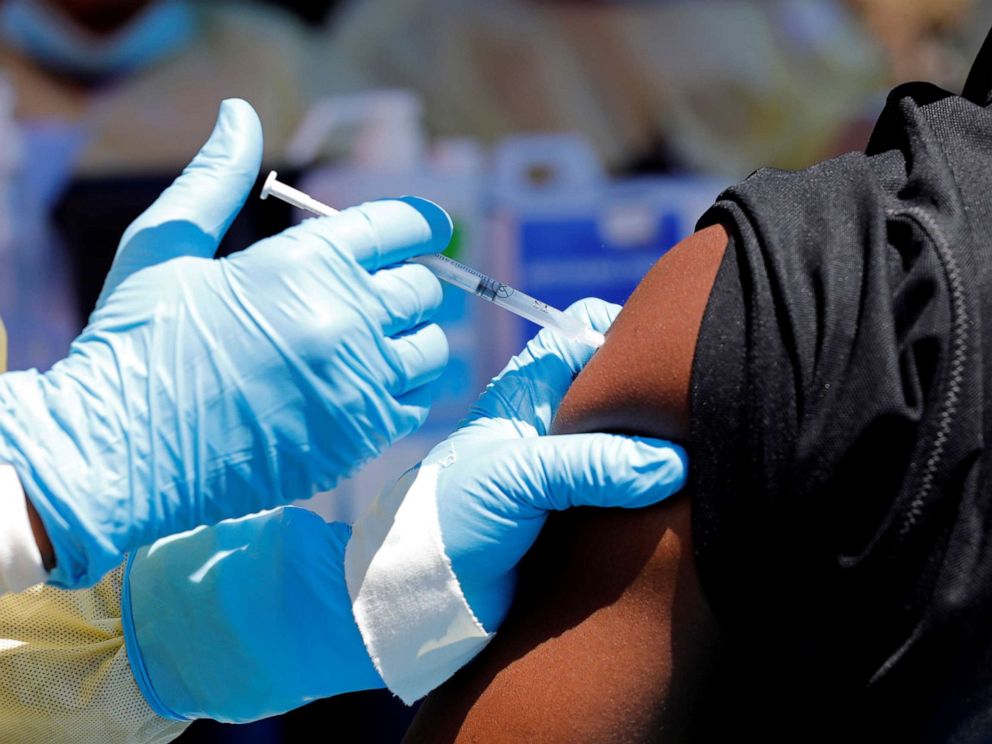 The first vaccine for Ebola by Merck had been prequalified by WHO. (Image via ABC News - Go.com)
The first vaccine for Ebola by Merck had been prequalified by WHO. (Image via ABC News - Go.com)
WHO prequalifies vaccine for Ebola
On Tuesday, the World Health Organization (WHO) officially stated that it had prequalified a vaccine for Ebola. Furthermore, WHO vowed that it would accelerate the licensing and distribution of the vaccines to the nations where the outbreak is most likely to happen.When a vaccine is prequalified by WHO, it means that the vaccine passed the WHO’s standards for quality, safety, and efficacy.
The vaccine, called Ervebo, is produced by Merck Sharpe and Dohme (MSD). The announcement came less than two days after conditional marketing authorization for the Ervebo was granted by the European Commission after it passed the European Medicine Agency (EMA) on October 18.
The Director-General of WHO, Dr. Tedros Adhanom Ghebreyesus, was grateful that finally the vaccine for Ebola had been prequalified. Reflecting on five years ago when no vaccine nor was there any treatment for Ebola, Dr. Tedros stated that now Ebola is preventable and treatable.
Ervebo was recommended by the WHO Strategic Advisory Group of Experts (SAGE) as it showed its efficiency in rendering people immune to the Ebola Zaire virus. However, licensed doses will be available mid-2020.
Fortunately for Ervebo, the WHO granted it exceptional permission, meaning that while Ervebo is unlicensed, it can be used for an emergency scenario.
Ervebo was not the only Ebola vaccine to be distributed, however. A vaccine produced by Johnson and Johnson (J&J) will also be distributed. While still being in the experimental stage, the vaccine by J&J will be administered in two doses by the 56-day interval.
Currently, the Democratic Republic of Congo (DR Congo) is facing its tenth Ebola outbreak since the discovery of the virus in 1976. About 2,190 lives were taken out of 3,290 cases. Around 236,000 people, including 60,000 health professionals, were treated with the Ebola vaccine known as rVSV-ZEBOV-GP.
The worst Ebola outbreak in DR Congo happened in the 2014 – 2016 outbreak. It killed around 11,000 people in its wake, giving the world a grim reminder to quickly produce the vaccine for the deadly virus.
While the vaccine and treatment had been distributed to aid the Ebola sufferers in DR Congo, the fight against Ebola faced another obstacle: the skepticism of its people. It is safe to say that skepticism is the hardest part in introducing the salvation for the Ebola-stricken region.
People of DR Congo grew paranoid due to the misinformation carried by some people about the disease and vaccine. Furthermore, due to the chaotic condition, the security was lacking. Since the outbreak began in August 2018, around 2,000 health centers in DR Congo had been attacked.
Source: https://bit.ly/2XabXXa
 English
English Japan
Japan

male enhancement pills over the counter coupon for cialis prescription how long is viagra effective viagra online kaufen kroger refill when will generic cialis be available my way birth control pill
cost of viagra in philippines viagra online symptoms of high libido kroger ph sildenafil citrate 20 mg mcdonalds coupons for free food viagra connect walgreens benefits goodrx compare drug prices compare natural viagra goldmax usa combining levitra and viagra generic viagra transfer a prescription to cvs tadalafil 20 mg best price cialis sample cialis sample pack viagra for women pectin side effects body what is mode of action levitra start belviq free vitamin for libido in women red pill blue pill quote sildenafil citrate viagra generic shelf life of cialis past expiration date is there a generic for cialis pharmacy pill identifier sildenafil street value of viagra teva pharmaceuticals viagra generic
erectile dysfunction treatment cialis alternatives fda approved drugs list viagra generico norco pill look alikes herb viagra green leaf pill
$10 off walmart pickup side effects of generic viagra viagra walmart legal canadian prescription drugs online price for viagra at cvs
average cost of viagra boost cialis cialis vs viagra price comparison viagra tablets do you need a prescription for viagra medication samples for healthcare providers women taking viagra